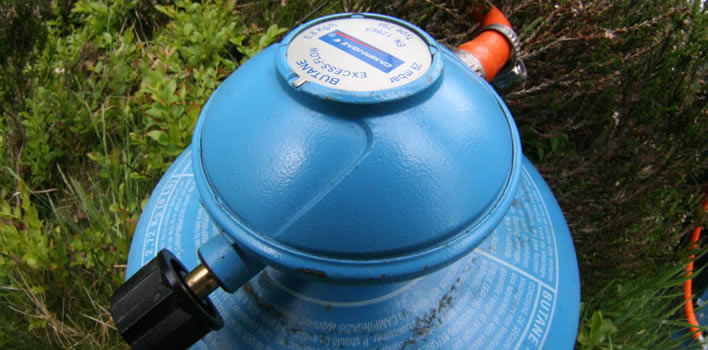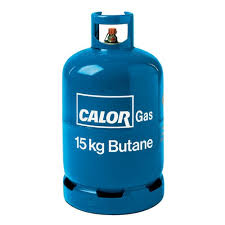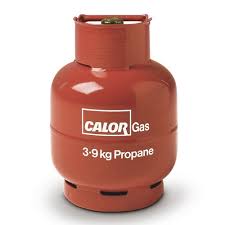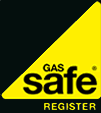
Types of Gas
Liquefied Petroleum Gas (LPG)
LPG can be one of two types of gas which have different properties so it is worthwhile to look at the differences:
Butane:
- More efficient in producing heat
- Denser so a same size container will hold more butane than propane
- Unable to be used at temperatures lower than 0˚C as it does not change from its liquefied state into vapour
Propane:
- More suitable for a system where multiple appliances are being used
- Performs much better in cold conditions and turns to gas vapour in freezing conditions of up to -40˚C
- Less dense and lighter


Gas Safe register and British Standards
The Body in charge of gas safety in the UK is the Gas Safe Register who replaced Corgi, the previous regulatory body. This organisation’s role is to promote safe gas practice, register and test gas engineers, investigate unsafe work and provide education to raise awareness of gas safety. Follow the icon to visit their website.
The BSI Group publish thousands of British Standards created by subject knowledge experts in their field. The standard that applies to campervans is:
BS EN 1949: 2011 + A1:2013
Specification for the installation of LPG systems for habitation purposes in leisure accommodation vehicles and accommodation purposes in other vehicles
The application of British Standards is voluntary except when required by legislation (written laws). Gas Safe registered engineers would be fully versed with the above document and use it to install a safe gas system in a motorhome. Can a novice campervan builder install a gas system on their own? We wrote to the Gas Safe Register and they kindly provided the following:
I am currently compiling a data sheet for self build campervan enthusiasts and I am finding differing advice. I therefore thought it best to contact yourselves regarding this matter.
Can you advise on the following points?:
What is the current British Standard regarding this subject?
The current Standard for new installations is BS EN 1949: 2011 +A1: 2013 Specification for the installation of LPG systems for habitation purposes in leisure accommodation vehicles and accommodation purposes in other vehicles
Can a non Gas Safe registered person install any part of a gas system?
A person can undertake their own gas work within their own vehicle providing that campervan is not intended to be hired out. If the vehicle is intended to be hired out, then the person/business undertaking that work must be registered with Gas Safe Register and be suitably qualified to do that work. Even though registration in some cases is not a requirement the person undertaking that work must be competent to do that work. In essence a non registered person would do what a registered engineer would do when installing and testing the gas installation.
If an installation was fitted by a non registered person can a Gas Safe engineer certify the system if it checks out safe?
As my answer above, if the vehicle is being hired out then the work must be done by a registered engineer. If there is not a requirement to be registered and the person decides they are competent, then why would they need to have it checked by a registered engineer? However saying that, it would be prudent that if they want to install their own LPG installation and subsequently want to have it checked, that they contact a suitably qualified registered business prior to undertaking that work to ensure that the business contacted would be willing to inspect that work. It is up to a business to decide whether they wish to inspect another persons work.
Any other relevant information that you can pass on?
Carry out the installation as required by the Gas Safety (Installation and Use) Regulations 1998, the manufacturer’s instructions and EN 1949. Most importantly do not DIY with gas, have the work done by a suitably qualified registered gas engineer…………………………
This information is current as of 2nd July 2013
Although the above is quite clear we want to emphasise the following points:
You are able to install the gas system (unless the vehicle is to be hired out) providing that you are competent. We must then look at the definition of competent:
com·pe·tent
Adjective
1. Having the necessary ability, knowledge, or skill to do something successfully.
I am sure there are many skilled people that have installed their own systems very safely without any problems. However, if anything went wrong and an accident occurred the self-installer would have to prove competency and if this could not be proved they may be subject to legal proceedings and civil damages. Also when selling a campervan prospective purchaser may want the reassurance that a Gas Safe Engineer has carried out the installation.
We don’t want to put off anyone off carrying out their own installation, instead we want to promote safety and good practice. We advise that anyone installing their own gas system use the British Standard document for design and reference. It’s only £162! However, if you want it for less contact your local library who will be able to advise where to go. We got a hard copy from our nearest city centre library for only four pounds. This did have to be retuned though, via the photocopier!
We advise any campervan converter whether they are installing their own system or not to get a copy of this document. It is written to be easily understood and contains helpful diagrams and figures. If you are unable to get a copy please let us know?
Due to copyright law we are unable to publish the document.
However, the document contains valuable information important health and safety topics such as ‘design of gas bottle compartments’ and guidance on ‘gas drop out holes’ in the event of any gas leaks. These are there for the safety of anyone using your campervan.

